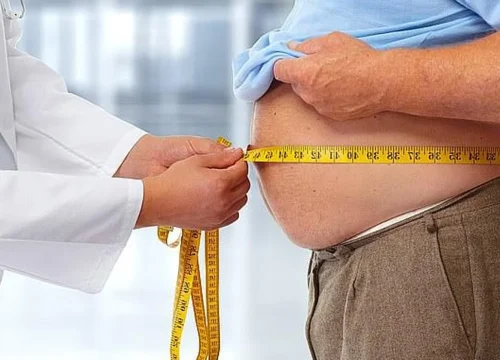A tiny electrode called a glucose sensor is inserted under the skin to measure glucose levels in tissue fluid. The glucose sensor produces an electronic signal that is related to the amount of glucose present in the blood. It is connected to a transmitter that sends that information to the data monitoring device using radio frequency. The monitor then displays the glucose reading on its screen and notifies you if it detects that your glucose is reaching a high or low limit. The latest systems can actually alert you before you reach your glucose limits.
Obesity Treatment In Indore

Obesity is a growing global health concern, and in India, its prevalence is rapidly increasing due to sedentary lifestyles, poor dietary habits, and hormonal imbalances. Obesity is not just about weight—it’s a complex condition that can seriously impact your overall health and quality of life.
What is Obesity?
Obesity is defined as having an excessive amount of body fat. It is usually measured using Body Mass Index (BMI). A BMI over 30 is generally classified as obese.
Causes of Obesity
Several factors contribute to obesity, including:
Unhealthy Diet: High intake of sugary, processed, and high-fat foods
Lack of Physical Activity: Sedentary lifestyle and desk jobs
Genetics: Family history of obesity or slow metabolism
Hormonal Imbalances: Conditions like hypothyroidism, insulin resistance, or PCOS
Medications: Certain drugs like antidepressants or steroids
Emotional Factors: Stress, anxiety, or depression leading to overeating
Health Risks of Obesity
Being obese significantly increases your risk for various health issues, such as:
Type 2 Diabetes
High Blood Pressure
Heart Disease & Stroke
Fatty Liver Disease
Sleep Apnea
Osteoarthritis
Certain Cancers (breast, colon, etc.)
Infertility and PCOS in women
How is Obesity Treated?
Obesity treatment is not just about weight loss—it’s about restoring overall health. At SEWA Centre Indore, Dr. Abhyudaya Verma offers a personalized, evidence-based approach, including:
How does Continuous Glucose Monitoring work?
Who needs Continuous Glucose Monitoring system?
1. Medical Evaluation
Hormonal tests (thyroid, insulin, cortisol, etc.)
Metabolic assessment and body composition analysis
2. Lifestyle Modification
Customized Diet Plan based on nutritional needs
Exercise Guidance suited to your fitness level
3. Medical Therapy
Safe, approved weight loss medications (if needed)
Treatment of underlying hormonal or metabolic disorders
4. Behavioral Counseling
Support for emotional eating, stress management, and motivation
5. Advanced Support
Bariatric surgery consultation in extreme or resistant cases.
